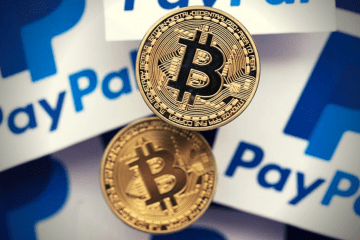Bitcoin scam uses Prince Harry, Meghan Markle to dupe would-be investors
A fake BBC news report featuring Prince Harry and Meghan Markle is being used by Bitcoin scammers promising investors daily profits of $1,300.
In brief
- Another crypto scam is using fake celebrity endorsements.
- This time round it’s the Duke and Duchess of Sussex.
- The “Bitcoin Evolution” scam claims to make would-be investors “a millionaire within three to four months.”
As cryptocurrency scams become more common—especially during the coronavirus pandemic—criminals are getting more creative.
The use of celebrities to lure people into crypto scams is nothing new—with the likes of Sir Alex Ferguson, Bill Gates and even Ripple CEO Brad Garlinghouse selected by crooks to make fake endorsements online.
But the latest celebrities to be used in a particularly imaginative scam include none other than the Duke and Duchess of Sussex, according to a report by UK newspaper The Mirror.
The scam “quotes” Prince Harry and Meghan Markle revealing on a popular TV show a “wealth loophole” that can turn “anyone into a millionaire within three to four months.” The secret, the royals are falsely reported to have said, is “cryptocurrency auto-trading program called Bitcoin Evolution.”
According to The Mirror, the scam uses a fake BBC news report, and further quotes Prince Harry saying, “We urge everyone to check this out before the banks shut it down.”
The website where users can sign up to get their hands on “Bitcoin Evolution” uses fake testimonials from Bill Gates and Eric Schmidt, and claims that “there is no other trading app in the world that performs at the 99.4% level of accuracy that The Bitcoin Evolution is able to hit”—with daily profits starting at $1,300.
Of course, many people would struggle to be duped into such lucrative investment. But scams like these that use fake news reports and phony celebrity endorsements are on the rise.
Last year, the UK financial watchdog put out a warning about such scams after calculating people had lost £27 million ($34 million) from dealing on fraudulent trading platforms.


